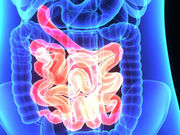Gluten-specific symptoms seen in only 16 percent of 231 patients with nonceliac gluten sensitivity
WEDNESDAY, March 8, 2017 (HealthDay News) — For patients diagnosed with nonceliac gluten sensitivity (NCGS), double-blind, placebo-controlled gluten challenge rarely confirms diagnosis, according to research published in the March issue of Clinical Gastroenterology and Hepatology.
Javier Molina-Infante, M.D., Ph.D., from the Hospital Universitario San Pedro de Alcantara in Spain, and Antonio Carroccio, M.D., from the University of Palermo in Italy, analyzed data from 10 double-blind placebo-controlled gluten-challenge trials involving 1,312 adults to determine the accuracy of this approach for confirming a diagnosis of NCGS. The studies varied in the duration of the challenge, daily doses for the challenge, and composition of the placebo.
The researchers found that in most studies the gluten challenge significantly increased symptom scores compared with placebo. However, gluten-specific symptoms were seen in only 16 percent of the 231 NCGS patients, while 40 percent showed a nocebo response (similar or increased symptoms in response to placebo).
“These findings reveal heterogeneity and potential methodology flaws among studies of gluten challenge, cast doubt on gluten as the culprit food component in most patients with presumptive NCGS, and highlight the importance of the nocebo effect in these types of studies,” the authors write.
Copyright © 2017 HealthDay. All rights reserved.








